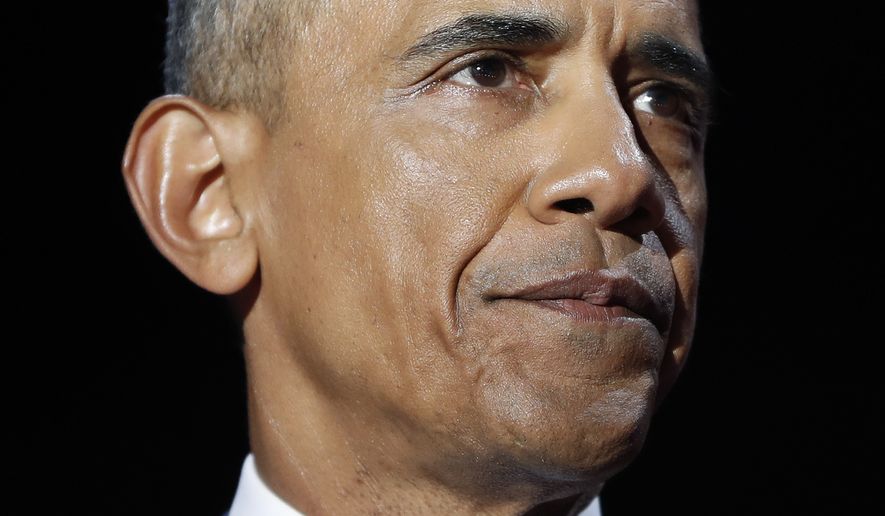OPINION:
President Barack Obama — with about a week left in his presidency — has all of a sudden shown interest in protecting government whistleblowers and the inspector general community.
This is in stark contrast to when he entered office in 2009 and waged a war against this community. His administration has prosecuted nine whistleblowers under the 1917 Espionage Act, more than double that of all other previous administrations combined.
Mr. Obama’s Department of Justice and FBI spied on The Associated Press, secretly wading through their reporters’ phone records, in an effort to chill potential federal whistleblowers. His administration targeted Fox News reporter James Rosen as a criminal co-conspirator under the Espionage Act for simply talking to one of his sources in the State Department and reporting on it.
“I experienced this pressure firsthand when the administration tried to compel me to testify to reveal my confidential sources in a criminal leak investigation,” wrote New York Times journalist James Risen last month, regarding Mr. Obama’s transparency record. “The Justice Department finally relented — even though it had already won a seven-year court battle that went all the way to the Supreme Court to force me to testify — most likely because they feared the negative publicity that would come from sending a New York Times reporter to jail.”
Now, days before President-elect Donald Trump is set to take office, Mr. Obama is trying to design policies that will protect whistleblowers from executive branch overreach.
Outgoing Energy Secretary Ernest Moniz announced Wednesday a new “scientific integrity” policy, which outlines “all scientists, engineers, or others supported by [the Department of Energy] are free and encouraged to share their scientific findings and views,” including talking to the media, giving public speeches and expressing their views on social media, according to the Washington Post.
It also outlines a “strong commitment to whistleblower protection laws and says the agency will install a ’scientific integrity official’ within the Energy Secretary’s office to head up enforcement of the policy,” the Post reported.
Essentially, the new policy is a way for the Energy Department to protect its employees and potential whistleblowers from the threat of a Trump presidency.
How quaint.
Mr. Obama is also taking a renewed interest in unleashing the Inspector General community.
During his administration, many IG positions were never even filled. At the close, eight agencies have vacant positions, and five were awaiting presidential appointments. The Project on Government Oversight, an independent outside watchdog, found Mr. Obama’s average time for filling IG vacancies was double that of past presidents.
But never mind that.
Last month, Mr. Obama signed into a law a bill that reversed his administration’s previous position that IG’s had to get permission from their agency heads to gain access to grand jury, wiretap and fair credit information.
In 2015, after a lengthy tug of war and stonewalling of the Justice Department IG’s investigation into Mr. Obama’s so-called “Fast and Furious” gunrunning scandal, Mr. Obama’s DOJ formally announced inspector generals would have to get permission from their agency heads to gain access to sensitive information. The action severely limited the watchdogs’ oversight capabilities, independence and power to uncover fraud.
But that ruling is no more, thanks to the law Mr. Obama signed last month — just in time for Mr. Trump’s administration.
And yesterday, news broke the Department of Justice’s IG will conduct a wide-ranging investigation of how the FBI handled the probe of Hillary Clinton’s email server.
How convenient.
Thank you, Mr. Obama for taking a renewed interest in protecting the very important power of watchdogs and whistle-blowers — a community you did your best to try to diminish and silence during your own presidency.




Please read our comment policy before commenting.